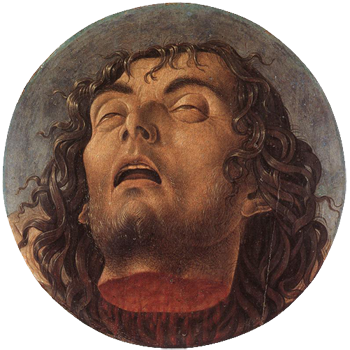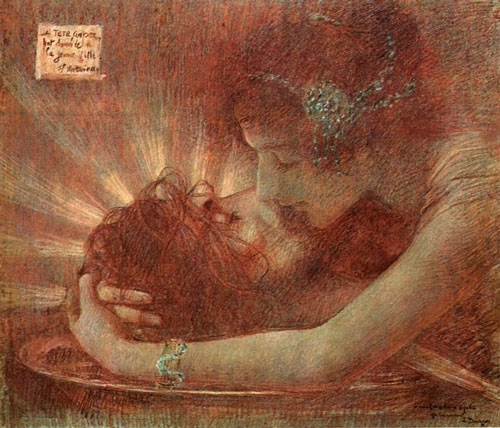A 15th century Italian painting of the Head of John the Baptist. Painted by Giovanni Bellini in 1464-1468.
This head is very similar to the one Cranach painted almost a century later. That same mix of agony and ecstasy, blood dripping out.
I love that it’s round. Makes me wish we could make round games. The shape reminds of the platter that the head ended up in after Salomé got her wish granted. Similar to how Caravaggio painted Medusa on a round canvas, referring to Perseus’s shield. Both Medusa and John lost their head! John’s hairs look a bit like snakes…
Oscar Wilde does a similar thing in his play by turning the full moon into a recurring theme.
Oh! How strange the moon looks! Like the hand of a dead woman who is seeking to cover herself with a shroud.
Moon, platter, neck, head. Aureola.


